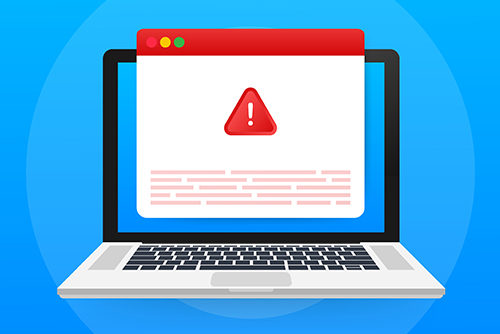
Beware of Student Loan Scams
Interest on federal student loans resumed on September 1, 2023, and payments will resume in October. Throughout the payment pause (and even before), scammers have preyed on borrowers who are hoping for student loan forgiveness, charging fees for fake services or stealing your information. How can you be sure you’re getting accurate information? Here are some ways to safeguard your finances and personal information to avoid becoming a victim of student loan scams.
“Don’t call us, we’ll call you.”
Whether you are contacted about your student loans by phone or email, always verify the information you receive. Hover (don’t click!) over an email link to see where it is actually taking you. Many times the URL is full of gibberish, contains a typo, or takes you to a site with a different name than the sender of the email indicates – a definite red flag for a scam.
If you receive a phone call about your loan that seems suspicious, inform the caller you will need to call them back. Then go directly to your lender’s website or a recent loan statement to verify the phone number/web address. Do not provide information to a number other than the one listed by your lender! Some scammers can even transmit a phone number to your caller ID to match the real one (known as “spoofing”), which is why it is a good idea to simply place the call yourself to a verified phone number.
Federal Student Aid (FSA) also has implemented a single phone number where you can access your federal student loan information: 1-800-4-FED-AID.
You also can reference information from these trusted sources:
- The U.S. Department of Education: https://studentaid.gov/
- Your lender/servicer’s website – find information on a recent statement, or for federal loans, visit https://studentaid.gov/manage-loans/repayment/servicers
- Your college’s financial aid office
Note: Any private student loans you hold will be accessed separately through your lender’s website(s).
Student Loan Debt Cancellation and Forgiveness
The federal student loan forgiveness plan proposed by the Biden administration was struck down by the Supreme Court. While the administration is planning alternative ways to introduce forgiveness, at this time, student loan forgiveness is limited to very specific groups:
- Borrowers who attended now-defunct schools that took part in deceptive or illegal practices
- Borrowers with total and permanent disabilities
- Certain public servants who benefit from changes to the Public Service Loan Forgiveness (PSLF) program
The U.S. Department of Education also offers a few student loan forgiveness and cancellation programs. If you are contacted with a message about qualifying for student loan forgiveness, remember – if it seems too good to be true, it probably is. You can always verify student loan forgiveness information directly through the Federal Student Aid site or your servicer. You can report scam attempts to the Federal Trade Commission by calling 1-877-382-4357 or by visiting reportfraud.ftc.gov.
Talk to an Expert
If you need 1:1 support, our College Counselor can help point you in the right direction. Submit a question or schedule an appointment for help.
This article was updated on September 21, 2023.
*Federal student loans may qualify for payment and interest rate benefits that private student loans do not. Carefully consider your options before refinancing federal student loans, as they will no longer qualify for current and future federal benefits once refinanced with a private lender. For more information, visit studentaid.gov or contact your federal student loan servicer.






